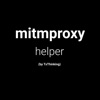How Proxy Servers and VPNs Shape the Battle for Online Anonymity and SEO Integrity
When data becomes currency, online anonymity and digital trust get more crucial than ever before. Whether it be a casual user guarding their privacy or a marketer trying to enhance the speed at which a search is performed, proxy servers and VPNs (Virtual Private Networks) are two of the most influential tools on the web to date. However, though such tools are very frequently deployed in the name of safety and liberation, they also pose serious questions about disclosure, honesty, quality marketing, and SEO integrity.



This blog discusses the functionality of proxies and VPNs, their effects on online anonymity, and the constant war between ethical SEO and dirty practices.
What are Proxy servers and VPNs?
Proxy Servers Explained
A proxy server works like a gateway, hosting one user and the internet. It collects user requests and transfers them to a target server. It responds to them, disguising the originating IP address.
Proxy Types:
- Datacenter Proxies: These ones are fast, cannot be affiliated with an ISP, and are used primarily to scrape data.
- Residential Proxies: Use actual IPs that connect devices, making them more difficult to identify and shut down.
- Transparent Proxies: They do not obscure identity and are used for filtering or monitoring purposes.
Many users who use proxies for game access minimize the lag, get out of IP bans, or gain access to geo-restricted gaming servers without affecting their main IP identity.
VPNs in a Nutshell
A VPN is a encryption for the entire connection of the user to the internet, which gets channeled through a secure tunnel to a remote server. It covers the IP address of the user and encrypts their online activity such that it is almost impossible to be tracked by hackers or Internet service providers.
Characteristics of VPN:
- Bidirectional encryption
- IP masking
- View of geo-blocked content
- Security in the local Wi-Fi
A Digital Right or a Dual-Edged Sword: Online Anonymity
Proxies and VPNs share the cause of online anonymity, giving the user freedom in areas with blocking, protecting reporters, and providing confidentiality over open networks. But anonymity has its own wrong use, too.
Advantages of Anonymity in the Online World:
- Partner tracing and surveillance prevention
- Enables the whistleblowers to speak out with security
- Evades firewalls and geo-blocks
- Assists in the prevention of hacking of personal identity
Risks and Moral Aspects:
- May provide support for forensic behavior
- Facilitates black-hat optimization techniques (e.g., content scraping, cloaking)
- Makes bot attacks traceable to some extent, and difficult
Relationship between Proxy Servers, VPNs, and SEO
Digital marketers and SEO specialists frequently have to use proxies and VPNs to do some research, as well as fake searches from another location and handle numerous accounts. Nevertheless, improper use may break Google Webmaster Terms and have an adverse impact on the long-term performance of a site.
Moral SEO:
- Local search evaluation (e.g., when in Mumbai, you can view New York SERPs)
- Unbiased competitive research
- Internationalization website testing
Black Hat Search Engine Optimisation:
- Automated scraping of rival content
- Fraudulent clicks to abuse the ranking.
- Ad fraud activity that consists of mimicking traffic (the use of bots)
Comparison Table: Proxy vs VPN for SEO
| Feature | Proxy Server | VPN |
| IP Masking | Yes | Yes |
| Encryption | No (unless configured) | Yes (by default) |
| Use for SEO Scraping | Common | Less common |
| Speed | Faster (esp. datacenter proxies) | Slower (due to encryption overhead) |
| Geo-targeting options | High (multiple locations) | Moderate to high |
| Reliability for anonymity | Medium | High |
| Cost | Variable (can be cheap) | Monthly subscription-based |
How Search Engines Detect and Respond
Google, as well as other search engines, continuously develop their laws to be able to identify proxy and VPN traffic, particularly those used unethically. They make use of algorithms, CAPTCHAS, and analytics of behavior to detect suspicious designs.
Methods that Google Adopts:
- The tracing of IP trends and request frequency
- Determining the bounce rates and abnormal dwell times
- Flashing, constantly changing the places or phones
- Install bot detection, such as reCAPTCHA
Sites found to be breaking the rules of SEO with sneaky proxy-based methods can face:
- Demerit in ranks
- De-indexing
- Manual actions
Finding a Balance: Integrity and Security
Digital professionals and businesses have to walk a well-balanced path. Proxies and VPNs offer precious functional features that enable privacy and reach across borders; however, with their abuse, the integrity of SEO, trust of users, and brand reputation are at stake.
Ethical Use Best Practices:
- Apply your residential or rotating proxies ethically.
- Aggressive manipulation or noncompliant automation is a no-no.
- Conduct location-based SEO analysis ethically.
- The use of VPNs should be coupled with genuine research, not manipulation.
- Remember, the SEO game must focus on transparency and building user trust.
Conclusion
The internet has become a two-sided sword, filled with opportunities and loopholes. The best allies in preserving anonymity and increasing digital performance are proxy servers and VPNs, but they should be applied with caution. Ethical practice is not just a flex but a need in the realm of SEO where integrity of SEO techniques is the marker of long-term success.
The digital battlefield will not stagnate as privacy keeps changing and search engines become more intelligent. As a business, marketer, or even a regular user, the focus should be on using these tools to empower and not exploit.
Related Apps
Latest News
- How Proxy Servers and VPNs Shape the Battle for Online Anonymity and SEO Integrity
- Key Features to Evaluate When Choosing a Datacenter Proxy Provider
- How to Use Proxy for Third-Party Marketplaces
- How to Edit Videos Online: A Beginner's Guide to Fast and Easy Editing
- What Are Dedicated Proxies? A Complete Overview for Enhanced Online Operations
- Navigating the Web Safely: Essential Tips for Protecting Your Digital Life







